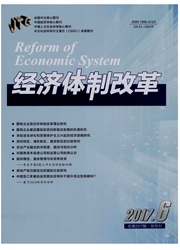

 中文摘要:
中文摘要:
本文利用2012年流动人口动态监测调查数据,系统地考察了居住模式和住房类型对农民工主观幸福感的影响。研究发现,相比于临时住所,分散居住和集中居住对农民工的幸福感有显著的正向影响。其中,分散居住的农民工主观幸福感较为强烈,尤以居住在自建房和自购房的农民工幸福感最强,而居住在非正规场所的农民工主观幸福感最低。在加入其他控制变量和考虑地区异质性后,该结论依然成立。考虑到实证分析中潜在的内生性偏误,本文结合倾向匹配得分法构造反事实框架,并进行替换解释变量、调整模型和样本等一系列稳健性检验,发现结论依然保持一致。分样本估计结果还显示,流动范围跨度大、流动时间长的农民工主观幸福感受居住状况的影响更为明显,此外,新生代农民工对居住状况更为“敏感”。居住模式对农民工主观幸福感的影响还存在显著的区域差异,中部地区、北京和上海的农民工的主观幸福感受居住状况的影响更为明显。
 英文摘要:
英文摘要:
This paper uses the dynamic monitoring data of the floating population of the year of2012to investigate the influence of accommodation pattern and housing type on the subjective well-being of rural migrant workers.This study finds that compared with temporary residence,both scattered and concentrated residence have an obvious positive impact on the feeling of happiness of migrant workers,particularly for those w h o live in scattered places.Furthermore,the feeling of happiness of migrant workers w ho live in self-building and purchased accommodation is the strongest,while the subjective well-being of those living in informal places is the lowest.After adding other control variables and considering regional heterogeneity,the conclusion is still consistent.Considering the potential endogeneity bias in empirical studies,this paper constructs a counterfactual framework by combining the propensity score matching method,and carries out a series of robustness tests by replacing explanatory variables and adjusting models and samples.The conclusion is still consistent with the above finding.The sample estimation result also shows that the subjective well-being of those with large migration span and long flow time is more subjective to living conditions.At the same time,the subjective well-being of the new generation of migrants is more sensitive to living conditions.In addition,the impact of accommodation on individuals’subjective well-being varies across regions.The subjective well-being of those w h o live in central China,Beijing and Shanghai is more likely to be influenced by their living conditions.
 同期刊论文项目
同期刊论文项目
 同项目期刊论文
同项目期刊论文
 期刊信息
期刊信息
